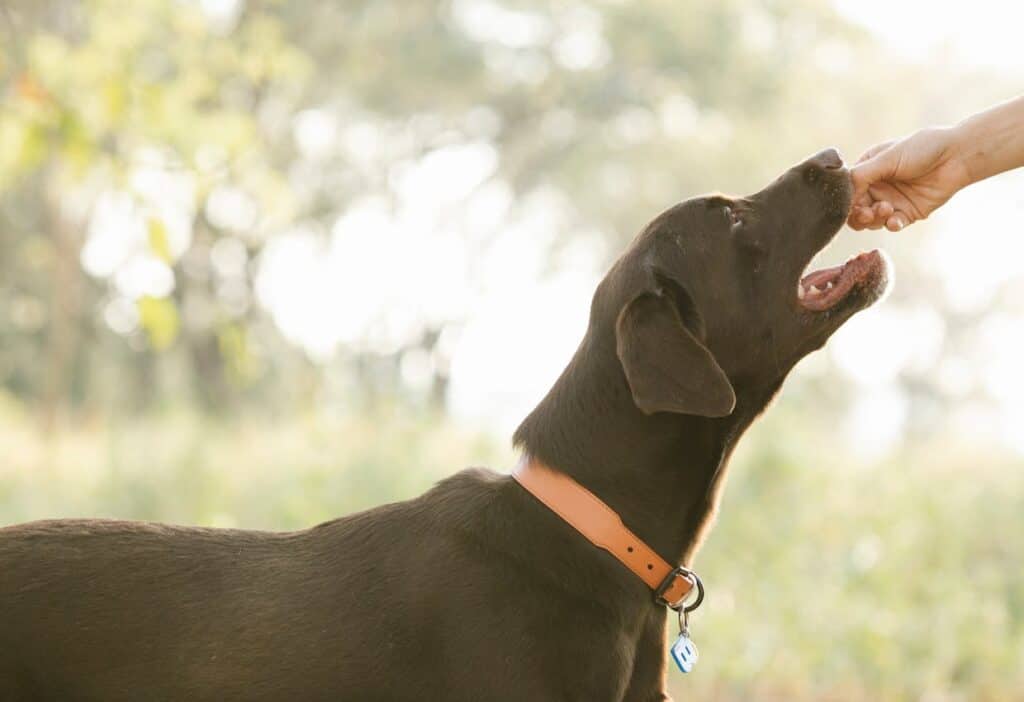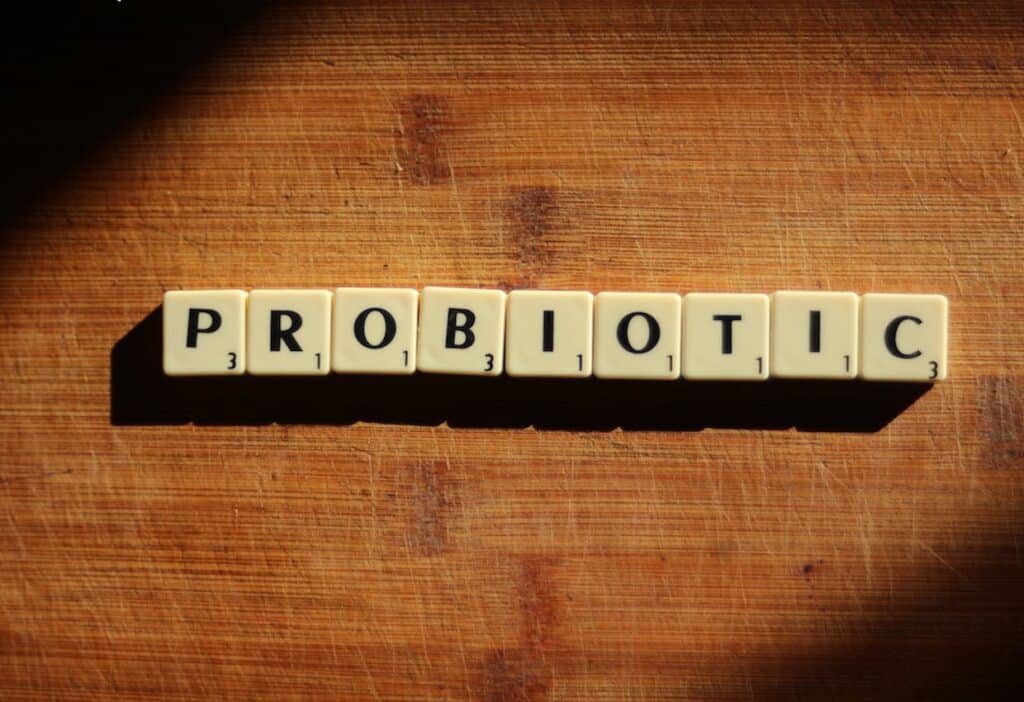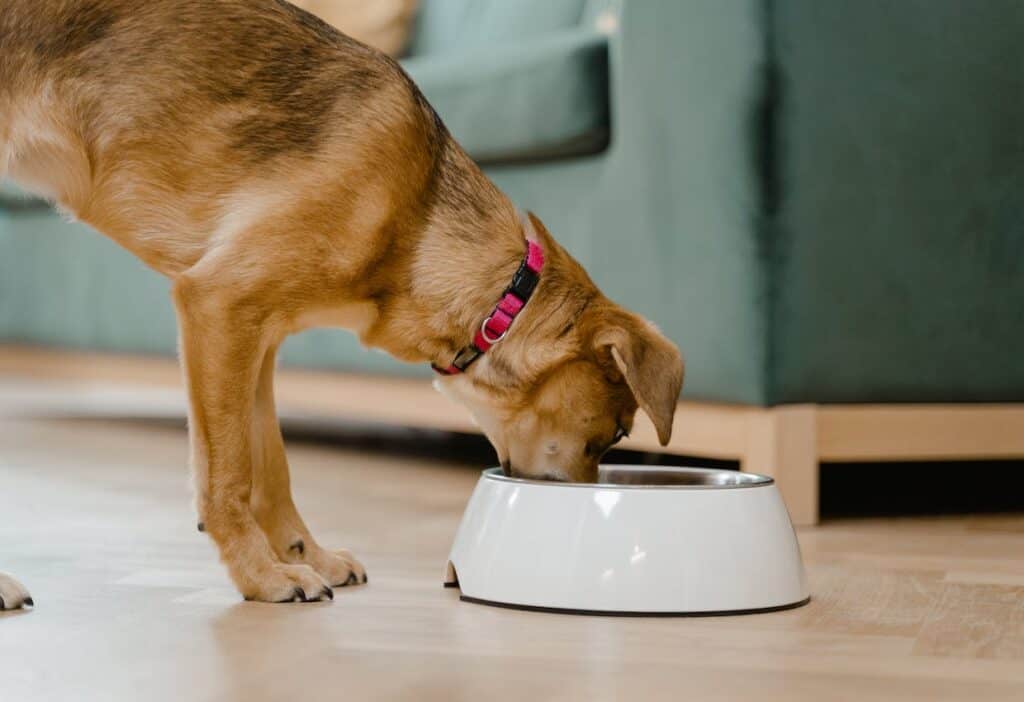With their rise in popularity, chances are, you’ve purposely taken a probiotic supplement or focused on naturally probiotic-rich foods to improve your gut health in recent years. Just like humans, maintaining a balanced gut flora is essential for the well-being of dogs. This article will explore the best probiotics for dogs, the plethora of benefits they offer and how they can be easily incorporated into their diet to support a happy, healthy and active life.

Understanding probiotics
Probiotics are live microorganisms, primarily bacteria and yeast, which confer health benefits to the host — in this case, dogs — when administered in adequate amounts.
They are often referred to as good or friendly bacteria as they help balance the gut microbiome.
Probiotics are identified by genus, species, subspecies and then strain. While there are hundreds of strains, the most common probiotics found in both food and supplements roll up into these four genera:
- Lactobacillus
- Bifidobacterium
- Streptococcus
- Saccharomyces boulardii
Benefits of probiotics for dogs
There are a plethora of uses for probiotics. However, the main functions for both humans and dogs can be summarized into three categories:
- Helping to maintain the natural balance of microorganisms in the intestines.
- Producing substances that lower the pH of the gut, making it less hospitable for harmful bacteria.
- Modulating the immune system, enhancing the gut barrier and producing vitamins and other beneficial compounds.
Improved digestion and nutrient absorption
Probiotics promote a balanced gut microbiome, which is essential for optimal digestion. They aid in breaking down food and absorbing nutrients efficiently. Probiotics can also alleviate symptoms of digestive disorders, such as diarrhea and constipation.
Strengthened immune system
Like humans, a significant portion of a dog’s immune system is housed in the gut, making gut health crucial for immunity. Probiotics support the immune system by enhancing the gut barrier and promoting the growth of beneficial bacteria. They also help in the production of natural antibodies and the activation of immune cells to fight off pathogens.
“I’ve been using Amazon’s brand of probiotics for my dogs, and the results have been remarkable. They’re in the form of a chew, which they absolutely adore. They’ve significantly improved my dog’s digestive issues. The difference is clear-cut when I’m using them compared to when I’m not.”
— Eleanor Anne, Chaos Plants
Possible relief from allergies and skin conditions
Probiotics can modulate the immune response and potentially reduce the severity of allergic reactions. They may improve skin health by promoting a balanced microbiome and reducing inflammation. Some strains of probiotics have been shown to alleviate symptoms of atopic dermatitis and other skin conditions in dogs.
Mental health and behavioral benefits
The gut-brain axis, which is the bidirectional communication between the gut and the brain, plays a role in behavior and emotional well-being. Probiotics may positively affect a dog’s mood and behavior by influencing the production of neurotransmitters such as serotonin. They can also play a role in reducing stress and anxiety in dogs, leading to better overall behavior.

The best probiotic products available for dogs
Probiotics for dogs are available in various forms, including supplements, fortified dog foods and natural food sources. If you make your own homemade raw dog food recipe, you can easily add naturally probiotic-rich foods to your dog’s diet.
Supplements can be found as powders, capsules or chews, providing a concentrated source of beneficial bacteria. Fortified dog foods often contain added probiotics to support digestive health as part of a balanced diet.
Natural sources of probiotics for dogs include yogurt, kefir and fermented vegetables, though these should be given in moderation and with caution to avoid any adverse reactions. Combining probiotic-rich foods with foods high in prebiotics, such as jicama, is a great way to cover all your dog’s bases when it comes to gut health.
How to choose the best probiotic for your dog
When selecting a probiotic supplement or food, consider the specific strains of bacteria included and their proven benefits. Look for products that have been clinically tested and proven to be effective for dogs. Consult with a veterinarian to determine the most appropriate probiotic for your dog’s needs, especially if they have any existing health conditions.
Incorporating probiotics into your dog’s diet
Probiotics for dogs can be beneficial at any stage of your furry friend’s life, from puppies to seniors and for any breed, from the most active to the laziest. They are especially helpful during times of stress, illness or after taking antibiotics, which can disrupt the gut flora. Probiotics can also be used as a preventive measure to support overall health. Common signs that your dog may benefit from added probiotics include:
- Digestive issues such as diarrhea, constipation or irregular bowel movements.
- Frequent skin infections or allergies.
- Behavioral changes that may be linked to gut health, such as anxiety or aggression.
- Weakened immune system, which can manifest as frequent illnesses or infections.
Start by introducing probiotics gradually to avoid digestive upset. Monitor your dog’s response and be aware of any adverse reactions. Provide a balanced diet rich in fiber along with probiotics to support the growth of beneficial bacteria. Ensure your dog has access to clean, fresh water at all times, and be consistent with the administration of probiotics to see the full benefits.
“We have a Yorkie, and we’ve given her probiotics many times. We live in Berlin, so with a high density of dogs and random germs, it’s too easy for her to get sick, and the probiotics seem to help. If she ever has to take antibiotics for something, we give her probiotics, too. I haven’t given her probiotic food in a while, but when I’ve fermented my own sauerkraut in the past, I have given her a little bit of it, and she loves it.”
— Ali, Travel Made Simple

The future of probiotics for canines
While science has come a remarkably long way in the field of probiotics over recent years, there is still plenty of room for advancement to utilize probiotics in the overall health and well-being of dogs. Ongoing studies and research are continuously unveiling new strains of probiotics and their specific benefits for canine health. The development of targeted probiotics to address specific health conditions is a growing area of interest.
The concept of personalized medicine extends to probiotics, where individual dogs’ microbiomes could be analyzed to determine the most beneficial strains for their unique needs. This personalized approach could lead to more effective probiotic solutions that cater to the specific health requirements of each dog. As the understanding of the benefits of probiotics expands, they are likely to become an integral part of veterinary care.
Conclusion
Probiotics are powerful allies in supporting the overall health and well-being of dogs. From improving digestion and nutrient absorption to strengthening the immune system and potentially relieving allergies and skin conditions, the benefits of these beneficial microorganisms are vast and diverse.
By incorporating probiotics into dogs’ diets and consulting with veterinarians for personalized guidance, the full potential of these good bacteria can be unlocked to provide the best possible foundation for a healthy, happy canine life.
Gina Matsoukas, along with her husband, a K9 handler, write the blog, What Can My Dog Eat? seeking to answer common food and training questions of all dog owners. They live in central New York with their Belgian Malinois police canine, enjoying an active outdoor life.